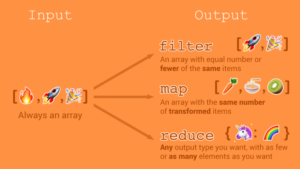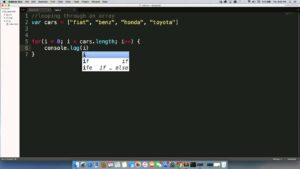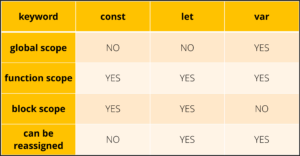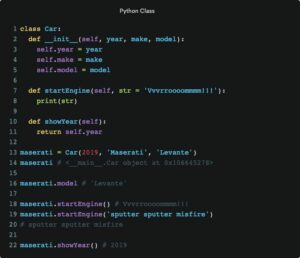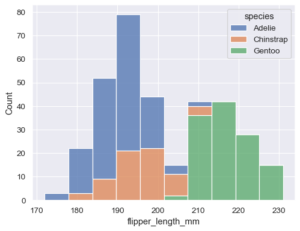Navigating the Coding Cosmos: A Comprehensive Guide to the Top 20 Best Programming Languages to Learn

Introduction:
In the ever-expanding universe of programming languages, choosing the right ones to learn can be a pivotal decision for aspiring developers, engineers, and tech enthusiasts. The dynamic landscape of technology constantly evolves, introducing new languages while solidifying the relevance of others. In this exhaustive guide, we will explore the top 20 best programming languages to learn in the current digital era. From web development to artificial intelligence, mobile app creation to data analysis, these languages offer a diverse spectrum of capabilities, making them essential tools for anyone venturing into the world of coding.
- Python: A Versatile Powerhouse:
- Python, known for its readability and simplicity, has become a go-to language for beginners and experts alike. Widely used in web development, data science, artificial intelligence, and automation, Python’s versatility makes it an invaluable language to learn.
- JavaScript: The Heartbeat of the Web:
- JavaScript is a cornerstone of web development, providing interactivity and dynamic features to websites. With the rise of front-end frameworks like React and Vue.js, JavaScript’s importance continues to grow.
- Java: A Cross-Platform Giant:
- Java’s “write once, run anywhere” philosophy has made it a stalwart in enterprise-level applications, mobile development (Android), and web development. Its strong community support and longevity make it a wise choice for those seeking stability.
- C#: Crafting Windows Applications:
- C# is a Microsoft-backed language primarily used for developing Windows applications, game development with Unity, and web applications through ASP.NET. Its syntax, inspired by C and C++, makes it accessible to those familiar with these languages.
- C++: Power and Performance:
- Renowned for its efficiency and performance, C++ is a low-level language used in systems programming, game development, and resource-intensive applications. Mastering C++ provides a solid foundation for understanding memory management and hardware interactions.
- Ruby: Elegant and Productive:
- Ruby’s simplicity and elegant syntax have made it a favorite among developers for web development, particularly with the Ruby on Rails framework. Its focus on developer happiness and productivity makes it an appealing language to learn.
- Swift: Shaping the iOS Ecosystem:
- Swift is Apple’s programming language designed for building iOS, macOS, watchOS, and tvOS applications. With its modern syntax and emphasis on safety, Swift has quickly become the preferred language for iOS developers.
- Go (Golang): Efficiency in Simplicity:
- Developed by Google, Go (or Golang) excels in performance, concurrency, and simplicity. Widely used in cloud computing and backend development, Go’s efficiency makes it a compelling language for scalable applications.
- SQL: Managing Data with Finesse:
- Structured Query Language (SQL) is essential for database management. Whether working with MySQL, PostgreSQL, or other relational databases, understanding SQL is crucial for handling, querying, and manipulating data.
- TypeScript: Supercharging JavaScript:
- TypeScript is a superset of JavaScript that adds static typing to the language. Popular for large-scale applications, especially those using Angular, TypeScript enhances code maintainability and catch errors during development.
- PHP: Powering the Web:
- PHP has been a foundational language for server-side web development. Although it has faced criticisms, PHP remains a crucial language for building dynamic websites, particularly with popular frameworks like Laravel and WordPress.
- Rust: Empowering Systems Programming:
- Rust is gaining traction for its focus on memory safety without sacrificing performance. It is often chosen for systems programming, where control over hardware resources is critical.
- Kotlin: A Modern Twist on Java:
- Kotlin, officially endorsed by Google for Android development, seamlessly interoperates with Java. Known for its conciseness and expressiveness, Kotlin is steadily becoming a preferred language for Android app development.
- Shell Scripting (Bash): Automating Tasks:
- Shell scripting, particularly using Bash, is a valuable skill for automating routine tasks and managing system configurations. It plays a pivotal role in the administration of Unix-like operating systems.
- MATLAB: The Language of Technical Computing:
- MATLAB is widely used in engineering, science, and mathematics for numerical computing, data analysis, and algorithm development. Its comprehensive toolboxes make it an essential language in academia and industry.
- Scala: The Fusion of Object-Oriented and Functional Programming:
- Scala, running on the Java Virtual Machine (JVM), seamlessly blends object-oriented and functional programming paradigms. Popular for its conciseness and expressiveness, Scala is often used in large-scale applications.
- Groovy: Dynamic and Versatile:
- Running on the Java Virtual Machine (JVM), Groovy is a dynamic language that simplifies Java development. It is often used for scripting, testing, and building concise yet powerful applications.
- Perl: Practical Extraction and Reporting Language:
- Perl, known for its powerful text processing capabilities, is widely used in system administration, bioinformatics, and network programming. Its flexibility and regex support make it a potent language for various tasks.
- Haskell: The Pinnacle of Functional Programming:
- Haskell, a purely functional programming language, is lauded for its strong type system and elegant solutions to complex problems. It is often used in academia and research, pushing the boundaries of functional programming.
- Objective-C: The Legacy of iOS Development:
- While Swift has largely taken over iOS development, Objective-C remains relevant, especially for maintaining legacy codebases. Understanding Objective-C is beneficial for developers working in Apple ecosystems.
Conclusion:
In the vast universe of programming languages, the choice of which ones to learn depends on individual goals, project requirements, and personal preferences. Whether you’re diving into web development, mobile app creation, data science, or system programming, the top 20 languages outlined in this guide offer a comprehensive array of tools and capabilities. As the technological landscape continues to evolve, staying adaptable and open to learning new languages will be essential for anyone embarking on a journey through the coding cosmos. Each language brings its unique strengths to the table, empowering developers to turn their ideas into reality and contribute to the ever-expanding world of technology.
